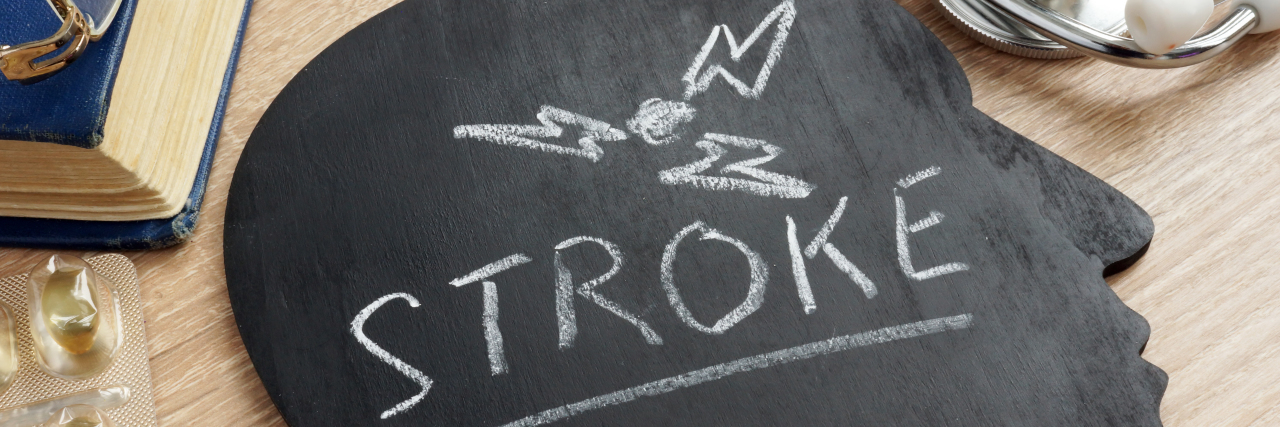5 Reasons I Help Spread Stroke Awareness
I had a brain stem stroke in 2012. I lost the ability to walk and talk but was able to gain back much of what I lost. After a long hospital stay and therapy, I returned home with a renewed outlook on life. Things would never be “normal” again, but life certainly did move on.
I found it hard to relate to former friends and co-workers, and some family members didn’t understand the changes (especially mental) that had happened to me. I started speaking and sharing my story. Stroke became a word used almost daily in my household. Many people were confused. Why didn’t I just get over the stroke and move on? “Stop dwelling on the past,” I heard. But when you use a cane daily, have to concentrate on every little thing and get emotionally overwhelmed easily, it’s hard to not remember what you’ve been through. I am reminded every single day. These are five reasons why I help spread stroke awareness.
1. People need to know the signs.
Many people do not know the signs of stroke. When a stroke occurs, time lost is brain lost so it is important to seek medical help quickly. I’ve heard stories of people feeling weird and trying to sleep it off and having a stroke in their sleep. There are clot busting drugs (TPA) and surgical options which can either stop the clot or stop the brain bleed. But often there is a window when these things can be done. So knowing the basic signs of a stroke can save someone from a life of disability or even death.
2. People need to know you don’t have to be elderly to have a stroke.
There is a stigma with stroke that it is just something for older people to worry about. I was only 33 at the age of my stroke. I know people even younger, even young children. Babies in utero can have a stroke before they are even born! So stroke doesn’t discriminate on age, race or gender. No one is immune.
3. People need to know you don’t have to be overweight to have a stroke.
I had recently lost 75 pounds and was in the best shape of my life at the time the stroke occurred. I worked out every day and was on Weight Watchers. I had no high blood pressure or high cholesterol, didn’t smoke, didn’t drink excessively, all the triggers of stroke. So no matter your body shape or how active you are, other things like holes in your heart, blood abnormalities, birth control pills etc. can be a deciding factor on whether or not you might have a stroke.
4. Stroke survivors need to know they are not alone.
One of the first things I did after my stroke was read fellow survivors’ success stories. How they overcame odds and beat this thing. It was very encouraging and gave me an “I can do it too” attitude. Blogging, vlogging and writing articles are some of the ways that I have been able to reach other people around the world. It’s a warm feeling when you find someone who has been through the same journey you have been on.
5. Once a teacher, always a teacher.
Before my stroke, I was a high school history teacher for 11 years, so teaching is in my blood. I wanted to share my stroke story with the world and spread the idea that no matter what, don’t give up. I wrote two books in which I was able to do just that. My classroom might have changed, but I found a way to continue teaching.
Will I be quiet about my stroke? Heck no. Sharing is not for everyone and I know several survivors who like to keep their stories to themselves. That’s fine; we all deal with things differently. But what I find helpful is sharing my story with others in hopes that people will at least be aware if someone they know has a stroke or if they happen to have one themselves. If I help to make one person more knowledgeable, a survivor feel safe, or save a life, it will all be worth it.
Getty image by designer491.

